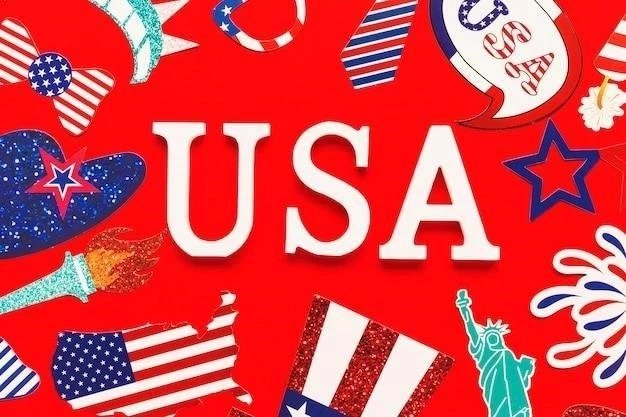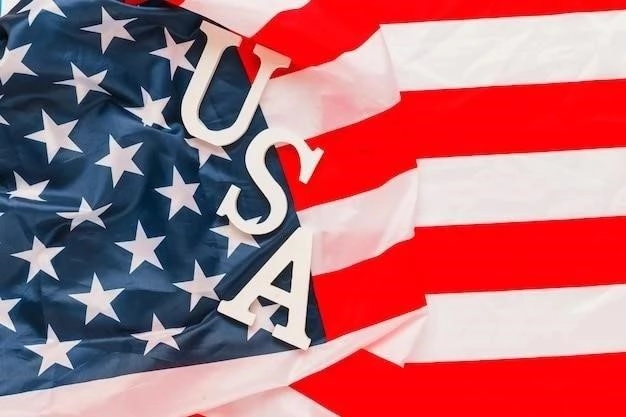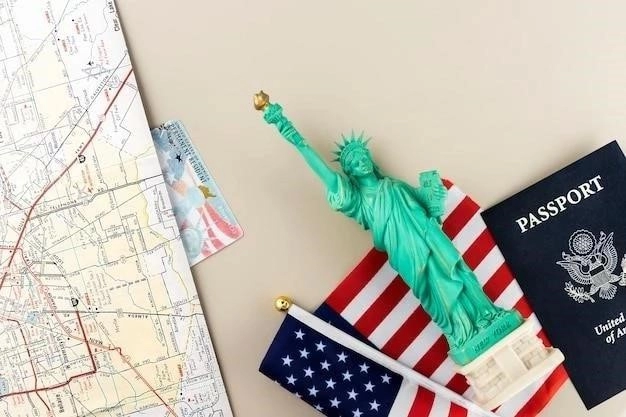The United States: A Nation United
The United States, a nation forged from diverse backgrounds and historical experiences, grapples with the complexities of unity in a constantly evolving world. From its inception, the nation has sought to reconcile its pluralistic composition with a cohesive national identity. This exploration delves into the historical forces, cultural values, and contemporary challenges that shape the ongoing pursuit of unity within the United States.

Defining American Identity
Defining American identity is a complex and ever-evolving endeavor. Unlike nations defined by shared ethnicity or historical homogeneity, the United States is a nation founded on ideals, a proposition constantly being tested and redefined. From its inception, the nation has grappled with the inherent tension between its aspirational identity, rooted in principles of liberty, equality, and individual opportunity, and the realities of its diverse and often divided populace.
Early attempts to articulate a national identity often centered around the concept of the “American Creed,” a set of shared values such as individualism, self-reliance, and democratic principles, as articulated by Gunnar Myrdal. These ideals, enshrined in foundational documents like the Declaration of Independence and the Constitution, provided a common framework for a nation grappling with its newfound independence and the daunting task of forging a national identity from a patchwork of colonies.
However, the “American Creed,” while aspirational, often masked the lived realities of many groups within the nation. The institution of slavery, the dispossession of Native American tribes, and the systemic discrimination faced by various immigrant groups challenged the universality of these ideals. Defining American identity, therefore, has been a continuous process of reconciling these foundational ideals with the historical injustices and ongoing struggles for equality that have shaped the nation’s narrative.
This interplay between ideals and realities continues to shape the discourse surrounding American identity. The question of who is considered “American” and what values truly represent the nation remains a subject of ongoing debate, particularly in light of globalization, increasing diversity, and political polarization. Defining American identity, therefore, is not a static exercise but an ongoing dialogue, a dynamic process of reflection, contestation, and ultimately, a striving towards a more inclusive and just understanding of what it means to be American.
The Evolution of American Values
The story of the United States is inextricably linked to the evolution of its core values. From its inception, the nation has been engaged in an ongoing dialogue about the meaning of its founding principles and their application in a constantly changing society. This evolution of values has been shaped by historical events, social movements, and demographic shifts, reflecting the dynamism inherent in the American experiment.
Early American values were deeply rooted in Enlightenment ideals, emphasizing individual liberty, self-reliance, and limited government. These principles, reflected in the Declaration of Independence and the Constitution, provided a framework for a nation emerging from colonial rule and striving to establish a new form of governance based on consent and individual rights. However, the early republic grappled with the inherent tension between these ideals and the realities of slavery, limited suffrage, and social hierarchies.
The Civil War and the subsequent Reconstruction era marked a pivotal moment in the evolution of American values. The abolition of slavery, enshrined in the 13th Amendment, forced a reckoning with the nation’s founding hypocrisy and ignited a continuing struggle for racial equality. Similarly, the women’s suffrage movement and the eventual ratification of the 19th Amendment challenged traditional gender roles and expanded the definition of citizenship.
Throughout the 20th and 21st centuries, American values continued to evolve in response to social and political movements. The Civil Rights Movement, the fight for LGBTQ+ rights, and the ongoing struggle for economic justice have all contributed to a broader understanding of equality and inclusion. This ongoing evolution of American values underscores the nation’s capacity for self-reflection and its ongoing pursuit of a “more perfect union.”
Symbols and Expressions of National Unity
Symbols and expressions of national unity serve as powerful touchstones, evoking shared history, values, and aspirations that transcend the diverse fabric of American society. These emblems, both tangible and intangible, provide a common language for expressing patriotism, belonging, and the collective identity of the United States.
From the earliest days of the republic, certain symbols have acquired profound meaning in the American consciousness. The American flag, with its stars and stripes representing the states united, has become an instantly recognizable emblem of national pride, displayed prominently on official buildings, homes, and during moments of national significance. Similarly, the bald eagle, a majestic bird symbolizing freedom and strength, was adopted as the national bird and remains a potent image of American power and resilience.
Beyond these iconic representations, national unity finds expression in a multitude of forms. The Pledge of Allegiance, recited by schoolchildren across the nation, serves as a daily affirmation of loyalty and the shared principles of liberty and justice for all. National holidays like Independence Day and Thanksgiving Day provide opportunities for communal gatherings, celebrating the nation’s founding and fostering a sense of shared heritage.
However, the meaning and relevance of national symbols can also be contested, reflecting evolving societal norms and differing perspectives on American identity. Debates over the display of certain flags, the interpretation of historical monuments, and the inclusion of diverse voices in national narratives highlight the dynamic nature of national unity and the ongoing process of negotiating shared meaning in a pluralistic society.
Challenges to National Identity

The pursuit of national unity in the United States has been a persistent endeavor, continually confronted by challenges arising from its inherent diversity and the complexities of a rapidly changing world. These challenges test the nation’s ability to forge a cohesive identity while navigating deep-seated divisions and evolving social, political, and economic landscapes.
One of the most enduring challenges stems from the nation’s history of racial and social injustice. The legacy of slavery, segregation, and systemic discrimination continues to cast a long shadow, fueling social unrest and hindering the realization of a truly inclusive national identity. Bridging racial divides and achieving genuine equality remain paramount challenges, requiring ongoing efforts to address disparities and dismantle systemic barriers.
Political polarization poses another formidable challenge to national unity. Increasingly partisan divisions, amplified by social media and a fragmented media landscape, have exacerbated ideological differences, making constructive dialogue and compromise increasingly elusive. This erosion of trust in institutions and fellow citizens can undermine social cohesion and hinder collaborative efforts to address pressing national challenges.
Furthermore, economic disparities and anxieties surrounding globalization can strain national unity. Income inequality, job displacement, and a sense of economic insecurity can fuel resentment and division, pitting different socioeconomic groups against one another. Addressing these economic anxieties and creating a more equitable society is crucial for fostering a sense of shared prosperity and national purpose.
The Role of Immigration in Shaping Identity
The narrative of the United States is inextricably intertwined with the history of immigration. From its very beginnings as a nation built by immigrants seeking new opportunities and freedoms, the United States has grappled with the complexities of integrating diverse cultures and identities into a cohesive national fabric. This ongoing process of assimilation and cultural exchange has profoundly shaped the evolution of American identity.

Each successive wave of immigration, from the early European settlers to more recent arrivals from Latin America, Asia, and Africa, has contributed to the nation’s cultural tapestry, enriching its traditions, beliefs, and perspectives. The influx of new languages, cuisines, artistic expressions, and religious practices has challenged preconceived notions of Americanness, pushing the boundaries of national identity beyond narrow definitions.
This process of integration has not always been seamless. Periods of intense nativism, marked by discrimination, prejudice, and attempts to restrict immigration, highlight the tensions inherent in reconciling national unity with cultural diversity. Debates over language, citizenship, and the preservation of traditional values underscore the ongoing negotiation of what it means to be American in an increasingly multicultural society.
Despite these challenges, immigration remains central to the American story, serving as a testament to the nation’s founding ideals of opportunity and inclusion. The contributions of immigrants in all sectors of society—from science and technology to business and the arts—underscore the vital role immigration plays in shaping a dynamic and ever-evolving American identity.

The Impact of Globalization and Technology
The forces of globalization and rapid technological advancement have profoundly reshaped the landscape of national identity in the United States, presenting both opportunities and challenges to fostering a sense of unity in an increasingly interconnected yet fragmented world.

Globalization, characterized by the interconnectedness of economies, cultures, and information, has blurred traditional national boundaries. While fostering economic growth and cultural exchange, globalization has also fueled anxieties about job displacement, cultural homogenization, and the erosion of national sovereignty. These anxieties can exacerbate existing social and economic divides, making it more challenging to maintain a cohesive national identity amidst the complexities of a globalized world.
Technology, particularly the rise of the internet and social media, has simultaneously connected and divided Americans. On the one hand, technology facilitates the exchange of ideas, promotes cross-cultural understanding, and provides platforms for civic engagement. On the other hand, it can create echo chambers, amplify misinformation, and exacerbate polarization, making it more difficult to find common ground and engage in constructive dialogue.
Navigating the impact of globalization and technology on national identity requires a nuanced approach. Harnessing the benefits of interconnectedness while mitigating potential drawbacks necessitates thoughtful policies, robust civic education, and a commitment to fostering dialogue across differences. The challenge lies in leveraging these forces to promote inclusivity, understanding, and a shared sense of purpose in an increasingly complex world.

The Future of American Unity
As the United States navigates the complexities of the 21st century, the question of national unity remains a pressing concern. A multitude of factors, including demographic shifts, political polarization, economic anxieties, and rapid technological advancements, will continue to shape the nation’s ability to foster a cohesive and inclusive society.
Addressing historical injustices and systemic inequalities remains paramount. A genuine commitment to racial justice, equal opportunity, and dismantling discriminatory structures is essential for creating a society where all citizens feel a true sense of belonging and shared purpose. Fostering dialogue across differences, promoting empathy and understanding, and actively combating prejudice and discrimination are crucial steps in bridging divides and strengthening national unity.

In an increasingly interconnected world, finding a balance between embracing diversity and cultivating shared values will be paramount. Recognizing and valuing the contributions of all Americans, regardless of background or beliefs, is crucial for fostering a sense of collective identity. Promoting civic engagement, strengthening social trust, and investing in education that emphasizes critical thinking, media literacy, and civil discourse can help bridge divides and empower citizens to engage constructively in shaping the nation’s future.
The future of American unity will depend on the collective efforts of its citizens to embrace the nation’s founding ideals while adapting to the challenges and opportunities of a rapidly changing world. It requires a commitment to dialogue, empathy, and a shared vision of a more just and inclusive society—a nation united not by uniformity, but by a common purpose and a shared commitment to the enduring principles of liberty, equality, and opportunity for all.










